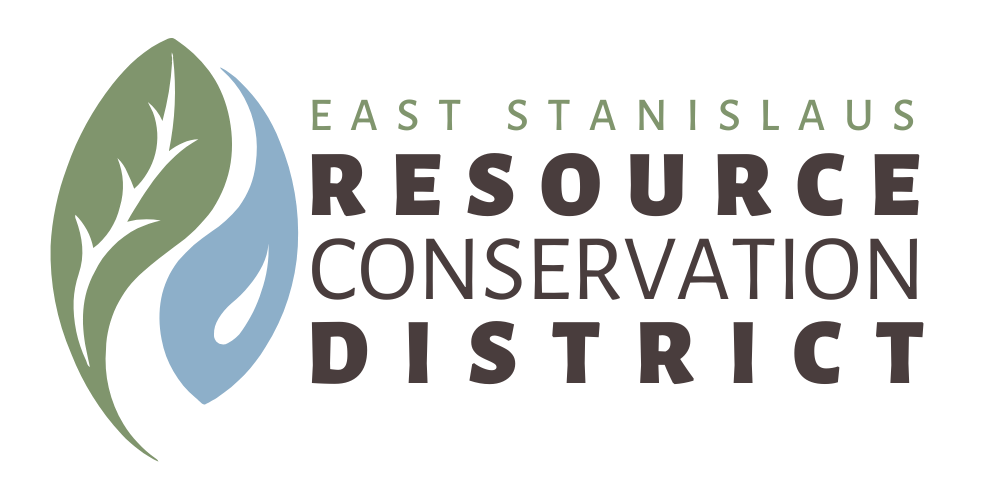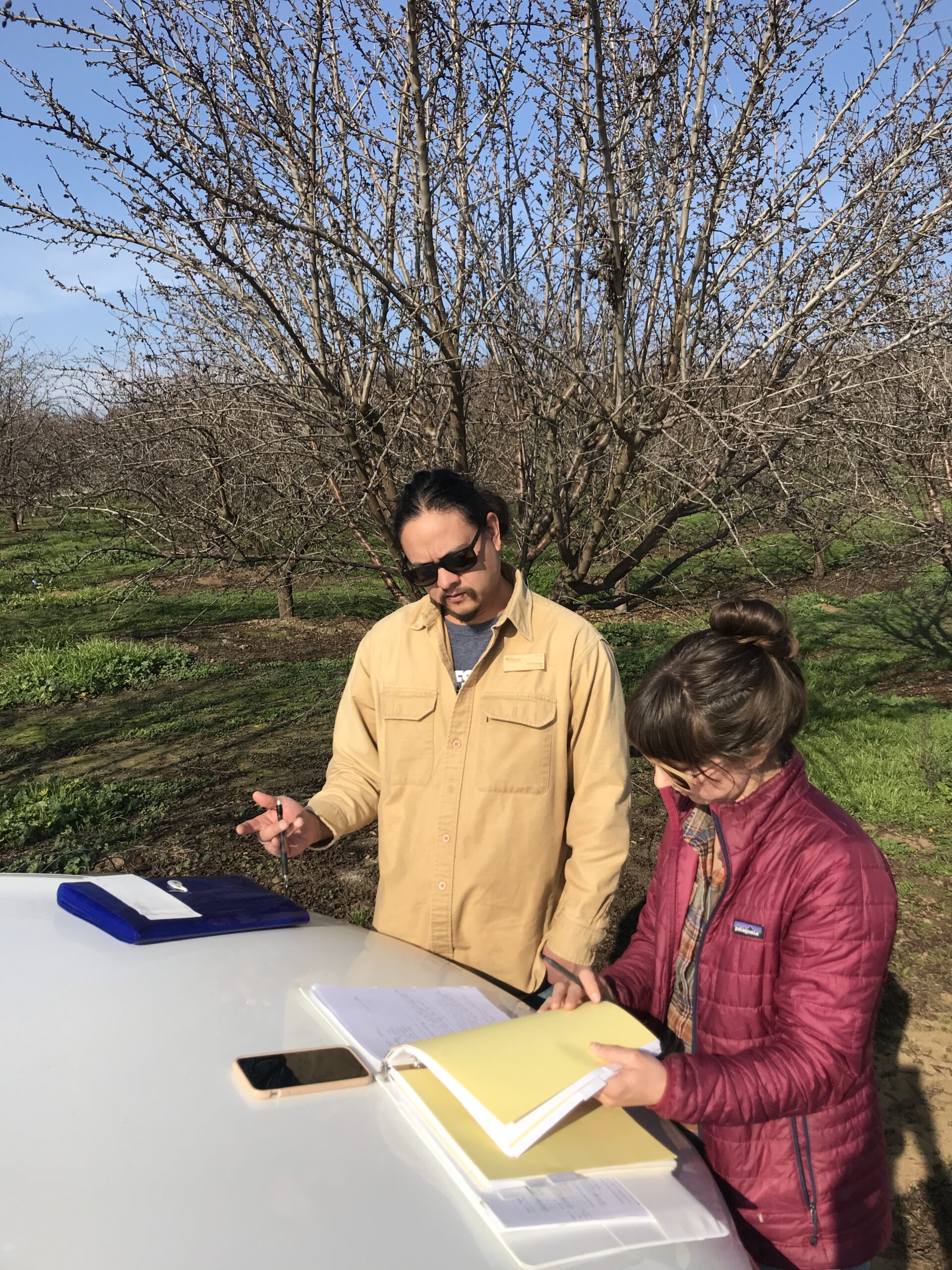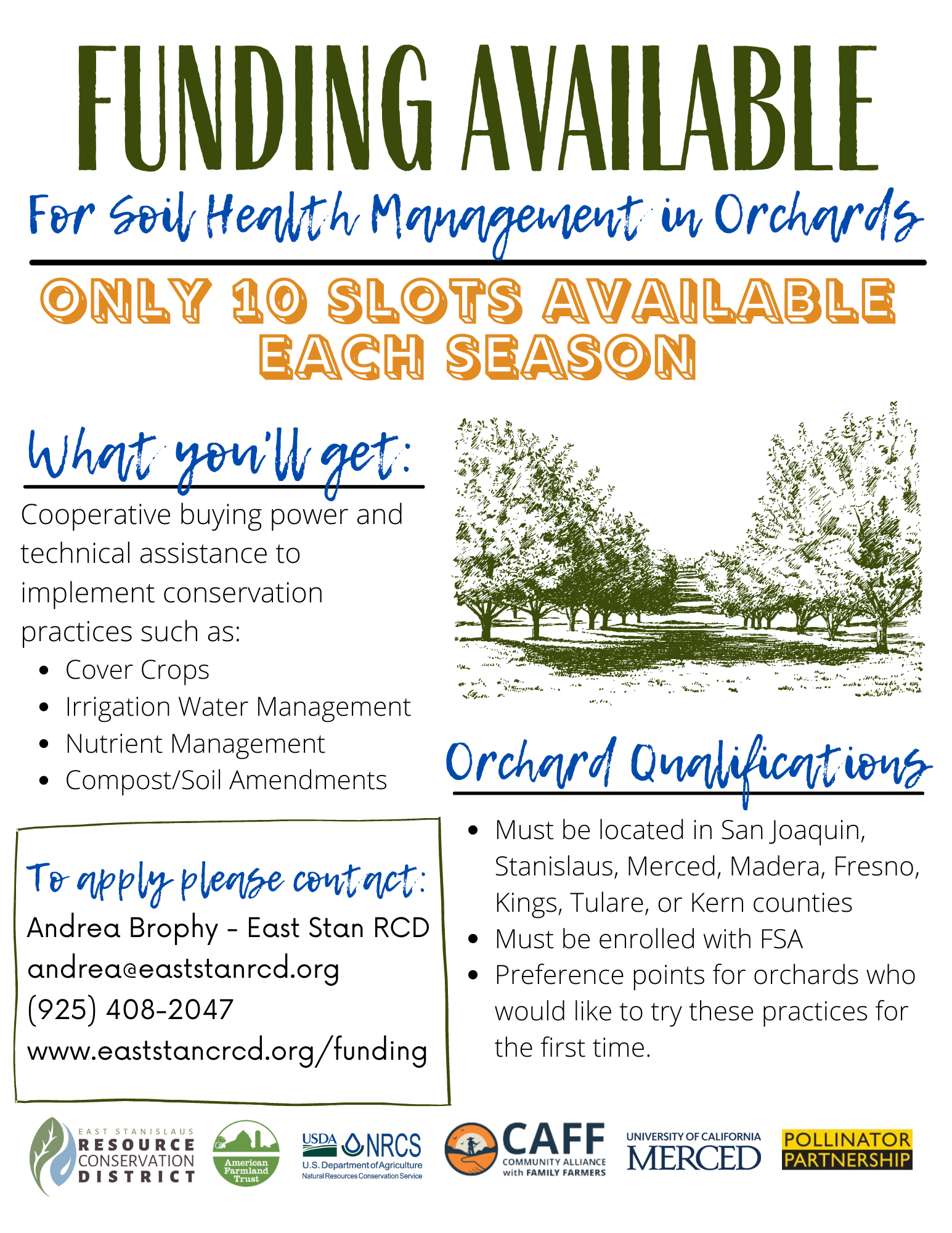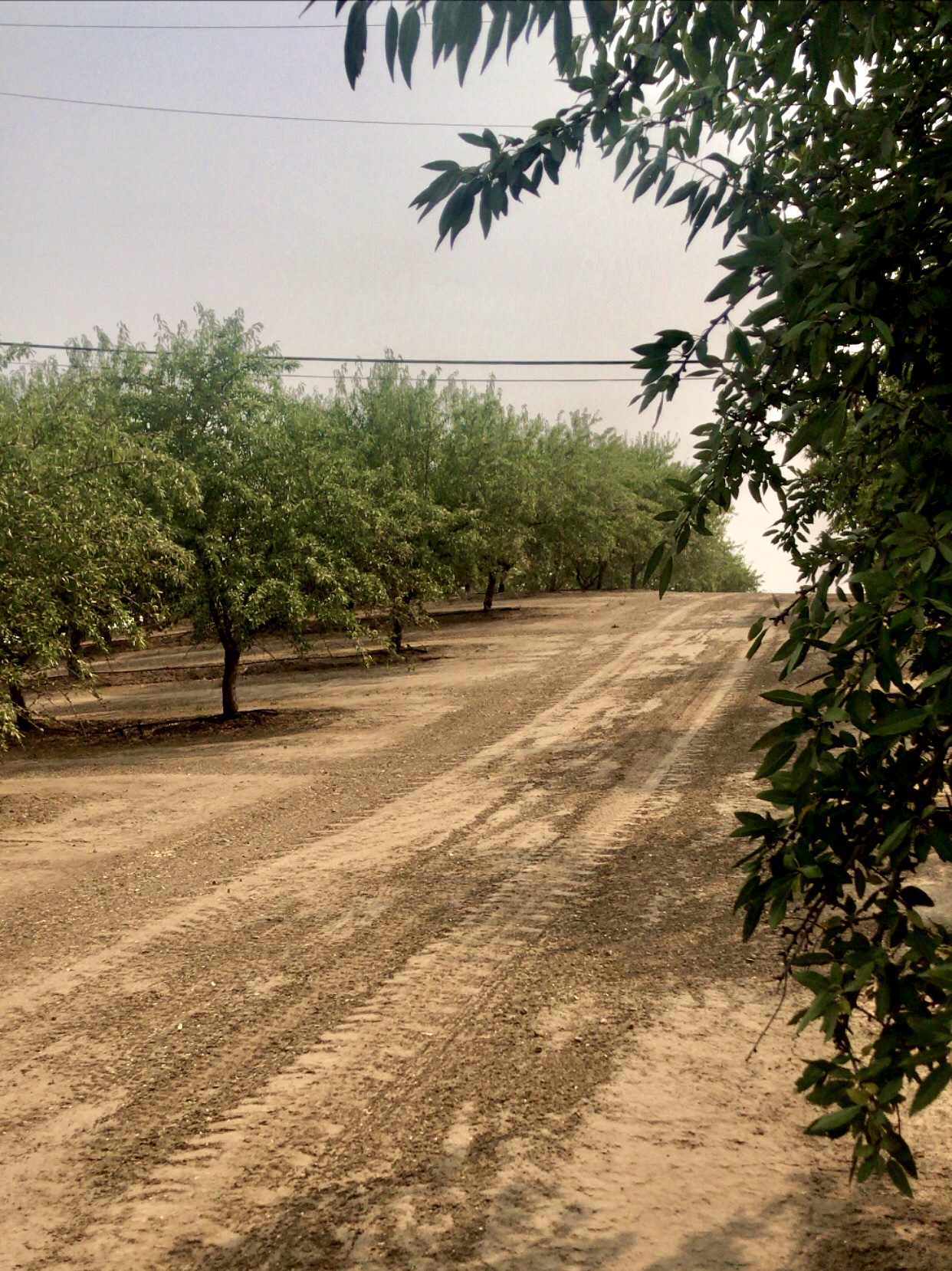Soil Health Funding Available!
Soil Health Management Systems for Orchards in California's Central Valley
In December 2019, the RCD was awarded a Conservation Innovation Grant from the Natural Resource Conservation Service (NRCS) to support on-the-ground conservation activities while evaluating their impacts. Bulk buying power discounts are provided to producers to offset the risk of implementing these innovative and sustainable approaches. Please contact Andrea Brophy at andrea@eaststanrcd.org to apply. Deadline for the application is March 1st.
Project Objectives:
- Assist with full implementation of Soil Health Management Systems Practices, cover cropping, composting, and soil amendments with consideration of irrigation and nutrient management.
- Collect knowledge on orchard system management, specifically water use, soil characteristics, and social and economic data.
- Address barriers to adopting Soil Health Management Systems Practices.
Who can qualify for incentive payments?
- Orchards in Tulare, Kings, Kern, Fresno, Madera, Merced, Stanislaus, San Joaquin
- Must be EQIP Eligible or enrolled in FSA
Partners:
East Stanislaus RCD
University of California, Merced
American Farmland Trust
Project Apis M
Community Alliance with Family Farmers
Have Questions?
Contact Andrea Brophy – andrea@eaststanrcd.org | (925) 408-2047
Other Financial Assistance Available
Financial assistance is largely available through state, federal, and private grants the RCD receives. Assistance may be provided for approved project design and implementation, or as rebates for completed projects that meet conservation standards. In addition, through the Natural Resources Conservation Service, our partner agency, specific financial programs are available:
Statewide Water Efficiency & Enhancement (SWEEP) Program: provides financial assistance in the form of grants to implement irrigation systems that reduce greenhouse gases and save water on California agricultural operations. Eligible system components include (among others) soil moisture monitoring, drip systems, switching to low pressure irrigation systems, pump retrofits, variable frequency drives and installation of renewable energy to reduce on-farm water use and energy.
Environmental Quality Incentives Program: The EQIP program provides financial and technical assistance to agricultural producers in order to address natural resource concerns and deliver environmental benefits such as improved water and air quality, conserved ground and surface water, reduced soil erosion and sedimentation or improved or created wildlife habitat. Payments are made to participants after conservation practices and activities identified in an EQIP plan of operations are implemented. Contracts can last up to ten years in duration.
Conservation Stewardship Program: helps agricultural producers maintain and improve their existing conservation systems and adopt additional conservation activities to address priority resources concerns. Participants earn payments for conservation performance—the higher the performance, the higher the payment.



